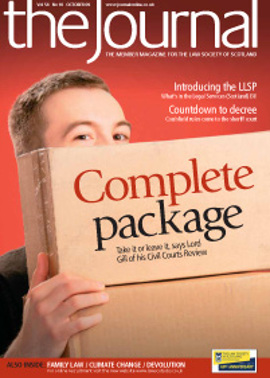The international swap shop
The last 12 months have seen governments from across the world enter into new bilateral agreements to facilitate communication on cross border taxation issues and to intensify enforcement on perceived offshore tax havens.
Since the G20 summit in London in April, more than 50 new tax information exchange agreements have been signed. In the UK alone, HM Revenue & Customs has introduced new tax information exchange protocols with Switzerland and Gibraltar amongst others; made significant changes to a number of its 100-plus existing agreements; and announced a new disclosure opportunity and a Liechtenstein disclosure facility to encourage disclosure and declaration of offshore accounts and assets.
New agreements
Combined, these country agreements have greatly enhanced HMRC’s ability to close the net on UK residents who do not declare all of their offshore assets. For example, the UK’s original agreements with Gibraltar and Switzerland limited the exchange of information to cases where there was "tax fraud" (Switzerland), or "criminal tax matters" (Gibraltar). In practice this meant that information would generally only be forthcoming if HMRC had commenced criminal proceedings in the UK, or at best were actively investigating with a view to a criminal prosecution. However, the new agreements are much broader in their scope, enabling HMRC to ask for information that may only be “foreseeably relevant” to a number of tax functions including investigation of tax matters.
However, perhaps the most significant aspect of the Gibraltar and Switzerland agreements refers to information held by banks. The terms of both agreements require the Swiss and Gibraltar authorities to ensure that their relevant Government departments have the powers required to obtain "information" from banks, other financial institutions and persons acting in an agency or a fiduciary capacity. The definitions of "information" are very broad, but can include details of ownership of companies, partnerships and trusts, for example.
Both agreements are currently subject to the domestic procedures required to bring them into force, but it is not anticipated that this requirement will be a significant hurdle. The Swiss agreement is expected to come into force from 1 January in the year next following the notification that the domestic procedures required have been completed. The Gibraltar agreement will be effective for taxable periods beginning on or after the date of the notifications, except in cases involving "criminal tax matters" where it will be effective as soon as the notifications have been exchanged.
Qualifications
These agreements are not a carte blanche for HMRC investigators to take short cuts. Both agreements require HMRC to have exhausted its normal procedures under domestic law to obtain the information being sought. In addition HMRC must explain to the other state’s authorities the tax purpose for which it requires the information, and details of who it believes has the information in their possession.
Requests for information must state the identity of the person or persons under examination or investigation. These provisions should exclude the use of the agreements to seek "blanket" or general information and ensure that they are only used in specific appropriate cases.
Nevertheless, there can be little doubt that the plethora of new and revised agreements being put in place around the world will make it much easier for revenue authorities to identify untaxed monies or assets in offshore accounts. Therefore, relevant people should consider making use of the tax amnesties being offered in the USA and elsewhere, including HMRC’s new disclosure opportunity and Liechtenstein disclosure facility. These brief windows of low penalty opportunity in the UK, which opened on 1 September, offer a chance for those with offshore assets to regularise their tax affairs. If individuals do not take this opportunity and their tax position is not correct, they can expect HMRC to come down on them very hard. Perhaps now is a good time for some clients to seek specialist advice on how best to bite the disclosure bullet rather than live with fingers crossed.
Rob Kernohan is a senior manager in Ernst & Young’s Tax Controversy and Risk Management Team.
In this issue
- The Combined Standard Clauses (2009 edition)
- Preserving a legal inheritance: settlement rights in the "Occupied Palestinian Territories"
- The European Court and the duty to investigate deaths
- Chief Executive's SGM address
- Shelter's online resources
- Musical copyright and contract
- The international swap shop
- Headline fortnight
- The Gill Report? What's not to like?
- Solicitor advocates and conflicts of interest
- Settlement in the West Bank
- Package deal
- RoS = economic value
- Defining the future
- Global leader?
- Dog's chance
- Coulsfield rules OK
- Money and your life
- Experts on the case
- At the hub, 10 years on
- Guardians: don't look to the Fund
- From the Brussels office
- Ask Ash
- Making the most of ABS
- Planning for growth
- The perils of posting
- ARTL: friend or foe?
- Where privacy prevails
- How was it for you?
- Agreeing rescues with creditors
- Adopting new solutions
- Divorce for gender change
- Scottish Solicitors' Discipline Tribunal
- Book reviews
- Website review
- A safe pair of hands tops the bill
- Law out of step






